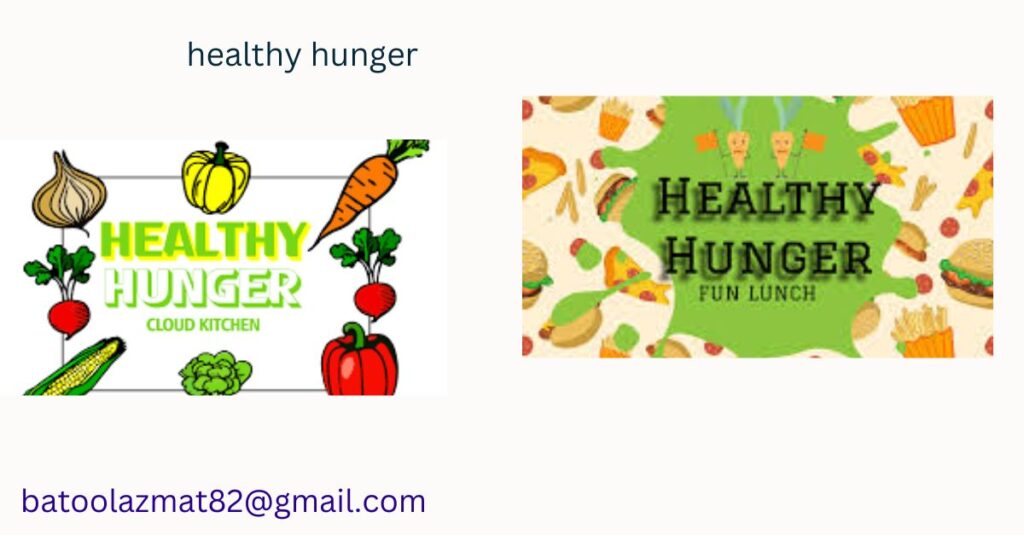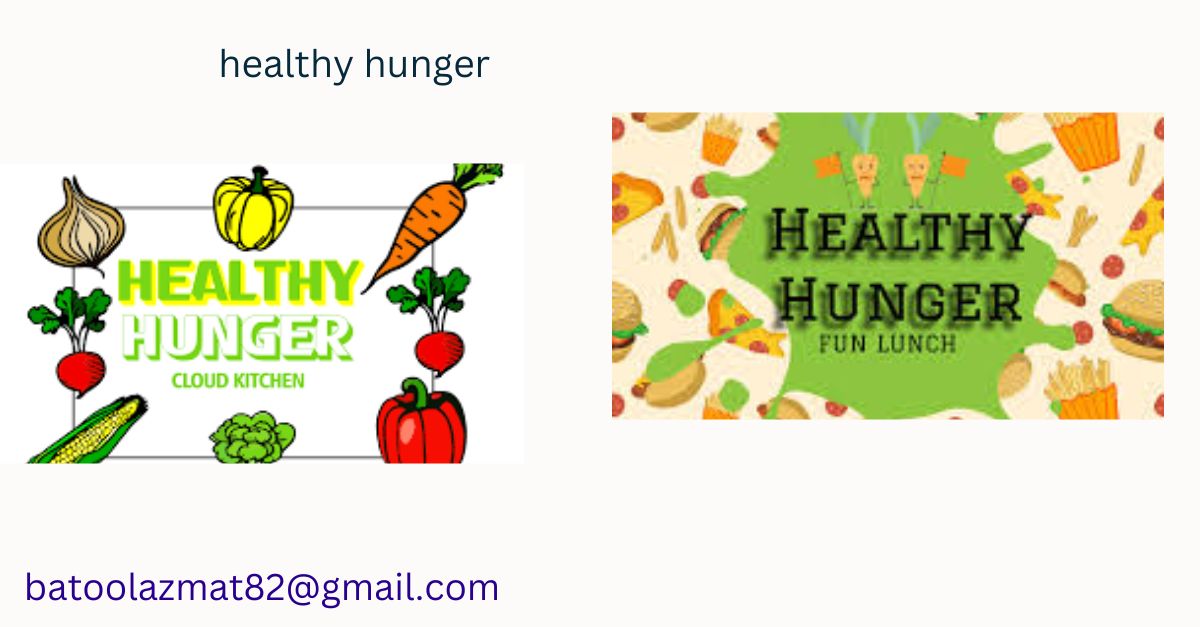Introduction
healthy hunger” is crucial for maintaining overall well-being. Many people confuse hunger with cravings, emotional eating, or simply bad habits, leading to unhealthy food choices. But what if you could differentiate between real hunger and mindless snacking? In this comprehensive guide, we’ll explore everything about healthy hunger, including its signs, benefits, and how to satisfy it with nutritious foods.

What is Healthy Hunger?
Healthy hunger is the body’s natural signal that it needs fuel to function properly. Unlike emotional hunger or boredom eating, healthy hunger:
- Develops gradually
- Is satisfied with a balanced meal
- Doesn’t lead to guilt or regret
- Enhances energy and focus after eating
Recognizing and responding to real hunger cues can help in weight management, better digestion, and improved overall health.

Signs of Healthy Hunger vs. Unhealthy Cravings
Healthy Hunger:
A slight feeling of emptiness in the stomach Gradual increase in hunger over time Open to eating a variety of healthy foods Energy levels drop slightly but improve after eating
Unhealthy Cravings:
A sudden, intense desire for specific foods (often sugary or fatty) Emotionally driven (stress, boredom, sadness) Not satisfied after eating a nutritious meal Leads to overeating and guilt
How to Respond to
1. Listen to Your Body
Instead of eating based on external cues (ads, emotions, social pressure), tune into your body’s natural signals.
2. Eat Balanced Meals
Include proteins, healthy fats, and fiber in your meals to keep you full longer and avoid unnecessary snacking.
3. Stay Hydrated
Sometimes, thirst is mistaken for hunger. Drink a glass of water and wait a few minutes before deciding if you’re truly hungry.
4. Practice Mindful Eating
Slow down and focus on your food. Enjoy each bite and pay attention to how your body feels.
5. Plan Healthy Snacks
If you feel hungry between meals, opt for:
- Nuts and seeds
- Yogurt with fruits
- Whole-grain crackers with hummus
- A smoothie with protein and fiber
The Benefits of Embracing
Weight Management: Helps in avoiding overeating and unnecessary calorie intake. Better Digestion: Allows the digestive system to function properly without excessive snacking. Improved Focus and Energy: Eating at the right time with the right foods keeps the brain sharp. Reduced Risk of Chronic Diseases: Prevents conditions like diabetes, obesity, and heart disease.
Healthy Hunger vs. Starvation: The Key Differences
Many people confuse healthy hunger with starvation, but they are vastly different:
| Aspect | Healthy Hunger | Starvation |
|---|---|---|
| Timing | Gradual onset | Extreme, prolonged hunger |
| Body’s Response | Normal signals | Weakness, dizziness |
| Satisfaction | Met with balanced meals | Lack of nutrients |
| Health Impact | Positive | Harmful to the body |
Common Myths About Hunger
Eating Less is Always Better
Hunger Means You’re Losing Weight
Truth: Healthy weight loss comes from balanced eating, not extreme hunger.
Snacking is Bad
Truth: Healthy snacks can prevent overeating and stabilize blood sugar levels.
FAQ – Frequently Asked Questions
1. How often should I eat to maintain healthy hunger?
It depends on individual needs, but eating every 3-4 hours helps maintain steady energy levels.
2. What are the best foods to satisfy healthy hunger?
Whole foods like fruits, vegetables, lean proteins, whole grains, and healthy fats are ideal.
3. Can I train my body to recognize healthy hunger cues?
Yes! Practicing mindful eating and maintaining a balanced diet helps in tuning into natural hunger signals.
4. How can I differentiate between hunger and dehydration?
Drink a glass of water and wait for 10-15 minutes. If the hunger persists, it is likely real hunger.
Conclusion
Understanding healthy hunger is a game-changer for overall well-being. By listening to your body, choosing nutritious foods, and practicing mindful eating, you can maintain a balanced diet and stay energized throughout the day. Start making conscious food choices today and experience the benefits of responding to true hunger!
Call-to-Action:
Are you ready to embrace healthy hunger? Start by incorporating nutrient-dense foods into your diet and share your journey with us in the comments!
